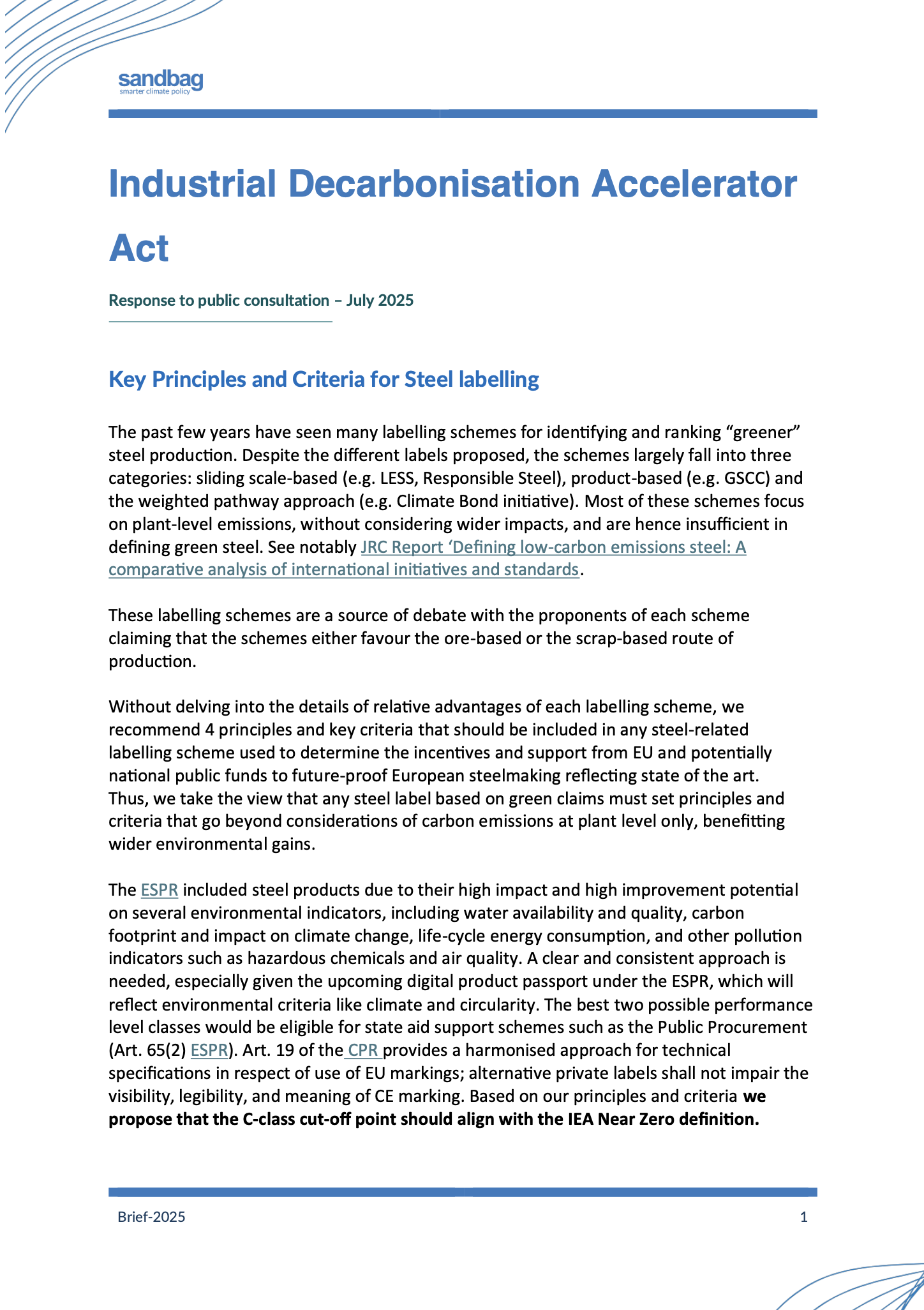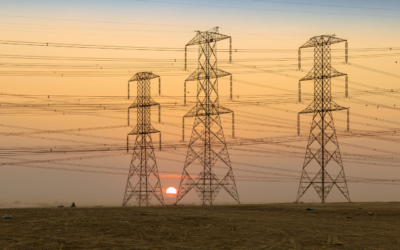Sandbag has submitted a response to the European Commission’s call for evidence on the Industrial Decarbonisation Accelerator Act (IDAA).
Our response sets out four principles to guide the development of credible green steel labels that support truly low-carbon production and avoid greenwashing.
To be effective, labelling must reflect full-system emissions and environmental impacts — not just reductions at plant level.

About the response
Sandbag’s response addresses concerns that emerging steel labelling schemes often rely on narrow or inconsistent metrics, risking poor alignment with EU climate goals. It recommends a set of common principles to ensure future steel labels drive real decarbonisation and can be used reliably in EU funding, procurement, and regulatory frameworks.
Key findings
Sandbag proposes four core principles for future EU steel labelling systems:
- Exclude fossil-based production routes
Steelmaking routes that rely on fossil fuels, carbon capture and storage (CCS/CCU), or fossil-based electricity should not qualify for the top tiers of any label.
- Support dynamic phase-out of high-emission classes
Labelling frameworks should progressively exclude the worst-performing routes, while incentivising the adoption of cleaner processes and inputs.
- Use forward-looking emissions criteria across full system boundaries
Categories should be based on lifecycle emissions and best available technologies — not historical EU ETS benchmarks — and include upstream impacts like methane leakage, as well as induced emissions from electricity use, which can vary depending on timing and location.
- Reward energy and feedstock efficiency
Labels should favour routes with lower energy input, direct electrification, scrap use, or hydrogen — with proper accounting for efficiency losses and imports.
Related publications
Dec 1st 2025
More on the Industry
Getting Electrification Right: The broader challenge of induced emissions
This report examines how the climate impact of electricity use is shaped not just by its source, but also by its timing and location. It evaluates the EU’s RED III framework and associated hydrogen targets, using the RFNBO standard as a case study. The analysis shows that ill-timed use of renewable electricity (particularly for hydrogen production) can inadvertently drive fossil generation. It argues for more strategic use of electricity to avoid these unintended consequences and support genuine decarbonisation.
Feedback on the EU Commission’s draft methodology for low-carbon hydrogen
For ‘low carbon’ hydrogen to truly make a positive contribution to Europe’s transition to climate neutrality, the safeguards put in place must be meaningful. Unfortunately, this does not appear to be the case in this draft delegated act.
The European Hydrogen Bank Confirms a Blind Support Approach
The Commission has recently published the Terms & Conditions (T&C) for the pilot auction...



